November 14, 2024 | 12:42 GMT +7
November 14, 2024 | 12:42 GMT +7
Hotline: 0913.378.918
November 14, 2024 | 12:42 GMT +7
Hotline: 0913.378.918
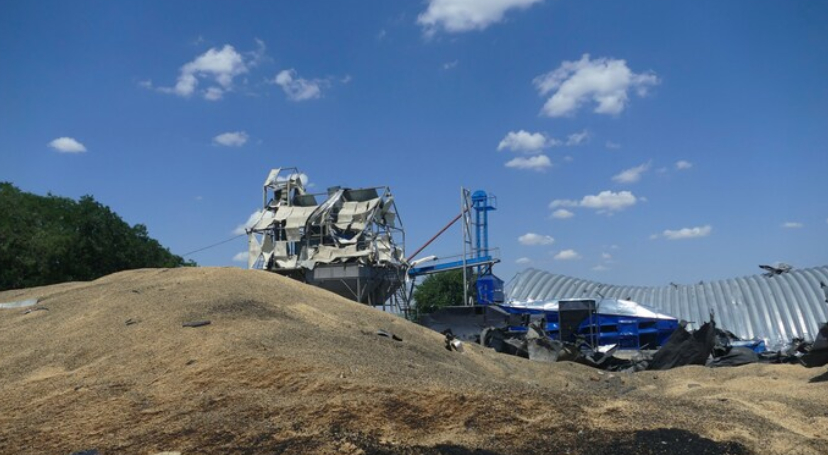
Burned grain and a damaged grain terminal of an agricultural enterprise in the Odessa region of Ukraine on Friday. Photo: Igor Tkachenko/EPA-EFE
Senior diplomats at a meeting of the U.N. Security Council on Friday excoriated Russia’s moves, which have sent grain prices soaring and which officials warned would exacerbate global food insecurity, leading some people in the world’s poorest countries to starve.
“Russia is waging war on the world’s food supply,” Linda Thomas-Greenfield, U.S. ambassador to the United Nations, warned the council. “Russian exporters are already benefiting while millions who cannot afford higher-priced grain suffer, especially people in the Middle East and Africa. Let’s be clear: Russia has zero, zero legitimate reason to suspend its participation in this arrangement.”
Gabon’s representative lamented the apparent conclusion of a rare diplomatic success story in the Ukraine war, which had “allowed us to hope that a certain degree of calm would begin to prevail, namely in terms of food security.”
The Black Sea Grain Initiative, brokered by the United Nations and Turkey last July, restarted shipments of Ukrainian grain after a months-long Russian blockade caused global food prices to skyrocket. The blockade set off alarm bells about rising hunger, at a time when climate change and conflict were already fueling food insecurity.
One of the two agreements guaranteed safe passage of commercial ships from the Ukrainian Black Sea ports of Odessa, Chernomorsk and Yuzhny, with inspection teams in Turkey charged with checking for unauthorized people and cargo. It also forbade parties from attacking civilian vessels and port facilities tied to the initiative. A parallel accord made it easier for Russia to export grain and fertilizer — products that were not under Western sanctions, but with which banks and traders had been wary of involvement for fear of being penalized.
Russia had repeatedly threatened to pull out of the agreement, complaining that Western sanctions were still hindering the export of Russian agricultural products. Russia has demanded better global access for its own agricultural products and wants the Russian Agricultural Bank — which has financed oil shipments since the Ukraine invasion — to be reconnected to the SWIFT global payments system.
U.N. Secretary General António Guterres told reporters this week he sent a letter to Russian President Vladimir Putin detailing actions the United Nations has taken to facilitate the export of Russian fertilizer. The U.N. also brokered a proposal recently for the European Commission to connect a subsidiary of the Russian Agricultural Bank to SWIFT, he said.
“I am deeply disappointed that my proposals went unheeded,” Guterres said Monday.
In recent months, Russia held up inspections of vessels seeking to exit the Black Sea, slowing the flow of goods. Still, under the deal, more than 1,000 vessels carried about 36 million tons of food commodities from Ukrainian ports to countries around the world, according to U.N. figures.
Moscow’s withdrawal — coupled with its announcement that it would consider all ships en route to Ukrainian Black Sea ports to be involved in the conflict as of Thursday — effectively reimposed Russia’s blockade. That could allow Russian grain to replace Ukrainian grain in global markets.
“Why has Russia made this choice?” France’s permanent representative to the United Nations, Nicolas de Rivière, asked the council. “It is increasing its income to finance its war of aggression against Ukraine.”
Russian officials from Putin on down have claimed for months that the Black Sea grain deal failed because only 3 percent of the grain went to the lowest-income nations. But the World Food Program relied on Ukraine for 80 percent of its wheat purchases this year, much of it for the acute food security crisis in the Horn of Africa. U.N. figures show that 64 percent of wheat and 51 percent of maize exported under the deal went to developing nations.
Proponents of the deal argue that its main benefit was bringing down food prices, including in the world’s poorest regions. Prices have dropped by more than 23 percent since March 2022.
The grain initiative has proved broadly popular — including among some countries that have maintained friendly ties with Russia. Moscow’s pullout from the deal drew notable rebukes from China, Egypt and several African members of the U.N. Security Council that have staked out relatively neutral positions on the conflict.
Mozambique’s representative to the U.N., Filipe Chidumo, said his country “prized” the initiative and warned that its suspension “is certain to amplify global socioeconomic stresses.” He called for all parties to recommit to the deal and urged Russia and Ukraine to engage in peace talks.
Separately, Egypt, one of the world’s top wheat importers and a major purchaser of Russian and Ukrainian grain, which has deepened its relationship with Russia in recent years, also criticized Russia’s withdrawal from the deal.
The country whose reproach could prove most influential, though, is China.
A member of senior Russian diplomatic circles, who spoke on the condition of anonymity to discuss a sensitive subject, said China could put pressure on Russia to return to the grain deal because it was the biggest recipient of Ukrainian grain.
“Both agreements should be implemented in a balanced, comprehensive and effective manner,” Chinese representative to the U.N. Geng Shuang said Friday.
A resolution would have to be found soon, the member of Russian diplomatic circles said, as Ukraine will soon run out of space to store grain when the new harvest reaches ports.
Since Russia announced its withdrawal from the agreement, wheat futures prices have risen by nearly 9 percent, with the largest single-day spike since the start of the war recorded on Wednesday.
A wave of Russian attacks on Ukrainian ports and agricultural facilities along the Black Sea this week have exacerbated concerns over food security and the potential for a broadening of the conflict. Russian forces struck granaries in Odessa on Friday, the fourth consecutive day of attacks on Ukrainian ports and agricultural facilities. The strike injured two employees and destroyed tons of peas and barley, Odessa governor Oleh Kiper said.
The wave of attacks has destroyed more than 60,000 tons of Ukrainian grain this week, Thomas-Greenfield said.
“The United States has information that the Russian military may expand its targeting of Ukrainian grain facilities to include attacks against civilian shipping in the Black Sea,” she told the Security Council. “Our information also indicates that Russia laid additional sea mines in the approaches to Ukrainian ports. We believe this is a coordinated effort to justify any attacks against civilian ships in the Black Sea and lay blame on Ukraine for these attacks.”
Tensions in the Black Sea remain high: Ukraine said Thursday that it may treat vessels headed toward Russian ports as potentially involved in the conflict, while Russian naval forces held a live firing exercise Friday.
Rosemary DiCarlo, U.N. undersecretary-general for political and peacebuilding affairs, said attacks against civilian infrastructure could constitute war crimes.
“Any risk of conflict spillover as a result of a military incident in the Black Sea, whether intentional or by accident, must be avoided at all costs, as this could result in potentially catastrophic consequences to us all,” she told the Security Council on Friday.
U.N. officials pledged to continue efforts to persuade Russia to return to the initiative and ensure grain and fertilizer from Ukraine and Russia can reach global markets. Otherwise, warned Martin Griffiths, U.N. undersecretary-general for humanitarian affairs, some of the world’s neediest people “will go hungry, some will starve, many may die as a result of these decisions.”
(WP)
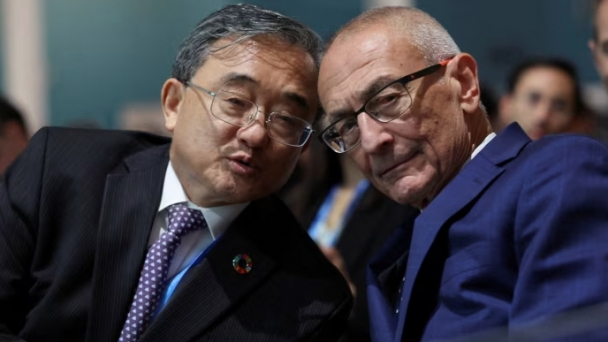
(VAN) Envoy tells COP29 summit in Baku that it is ‘firmly’ committed to controlling methane and other super-pollutants.

(VAN) Once every spring, a few days after the full moon, corals of the great barrier reef release eggs and sperm simultaneously – a phenomenon so spectacular it can be seen from space.
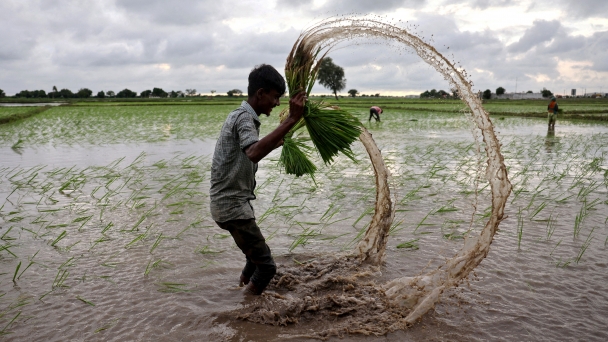
(VAN) A landmark new report predicts that half of the world's food production could fail over the next twenty five years, unless urgent action is taken to address the global water shortage.

(VAN) Once heavily scorned because of fraud and poor outcomes, carbon trading is likely to be high on the agenda in Baku.
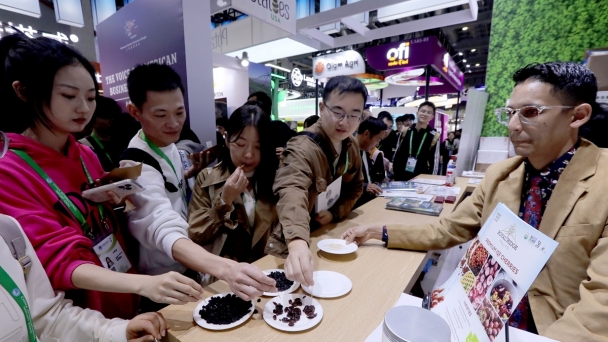
(VAN) Firms express optimism about Chinese market.
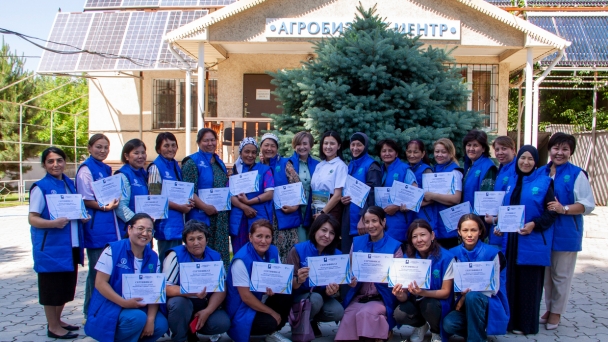
(VAN) Rural women are being empowered with greenhouses and training.
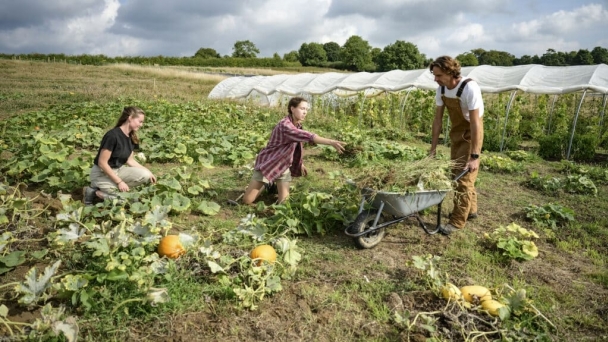
(VAN) According to Regeneration International, regenerative agriculture describes farming and grazing practices that, among other benefits, reverse climate change by rebuilding soil organic matter and restoring degraded soil biodiversity...